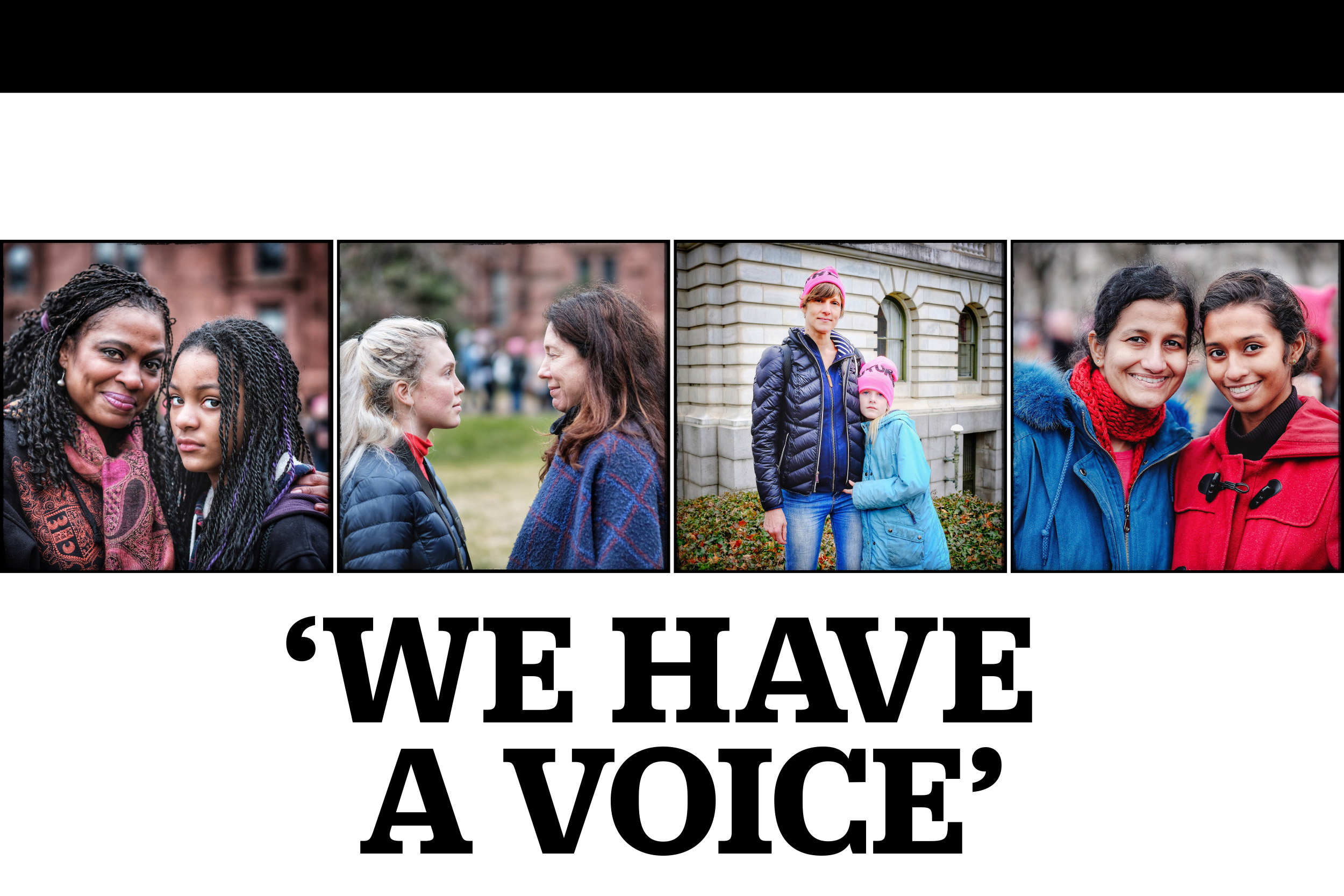Mothers and daughters reflect on Donald Trump at the historic Women’s March on Washington
INTERVIEWS AND PHOTOGRAPHS BY RUDDY ROYE FOR TIME
The Women’s March on Washington on Jan. 21 knew no bounds. It was multiracial and multiethnic. Its participants were not defined by gender, age, income or occupation—or any other typical identifier—and it was estimated to be three times the size of the crowd that attended President Trump’s inauguration the day prior.
On assignment for TIME, Ruddy Roye photographed attendees of the historic march. He observed and witnessed, listened and struck up conversations—just as he’s done over the past four years capturing modern American protests. And how Americans protest. Born in Jamaica and based in Brooklyn, his visual storytelling of struggles within black communities is unmatched. He’s rewarded with a following that not only expects him to continue, but to evolve. And he is.
In Washington, he focused on mothers and their daughters: Why they went as individuals, and why they went together. In brief interviews below, 11 families laid out their purpose: many said it was time to stand up, to shuffle along with other women and girls and their supporters, holding placards that listed their grievances, demands and hopes.“The conversations were always positive, always beautiful,” he recalls. “It was another opportunity for a voice that could have been lost, and these mothers and daughters grasped it.”
Roye, a father of two boys, says parenthood informs his work and keeps him grounded. Having focused on such a micro aspect, Roye left with a better understanding about who feels threats to their rights and freedoms. “Coming from a place where I photograph black men who won’t tell me they’re scared—you can smell it in the air, to tell that they are afraid—my heart just broke,” he says. “To hear it, some semblance of this fear creeping over young girls, really broke my heart.”
The women’s march fits in with his past storytelling, but it was also unique. “We’re seeing women lining up and reclaiming the space over patriarchy, over irresponsible language, inappropriate behavior,” he says. “I think we’re at a breaking point. It’s beautiful to see.” — Andrew Katz
***
‘Scared For My Future’
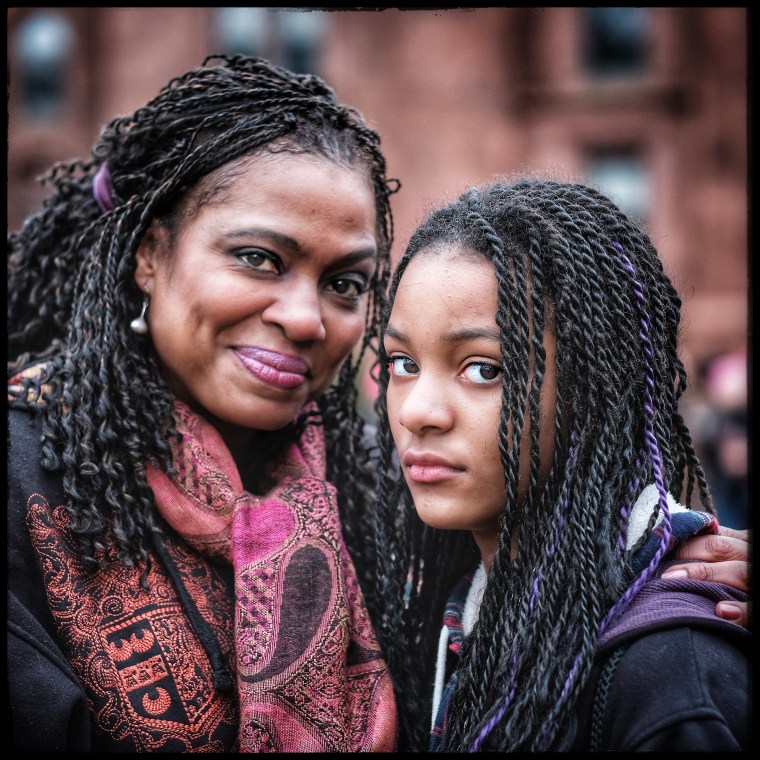
Vostina DiNovo, 51, came to the march with her 12-year-old daughter Taylor. “I am outraged that we put a troll in office. I know that his hatefulness could have an impact on Taylor for the rest of her life,” she told Roye. “Although we can’t undo the election results, my hope is that our being here today will have an influence on the political process going forward. I want for her to always believe in having a voice.” Taylor added: “It’s a march I had to be at. I am here because I am scared for my future.”
‘We Did Not Choose Him’
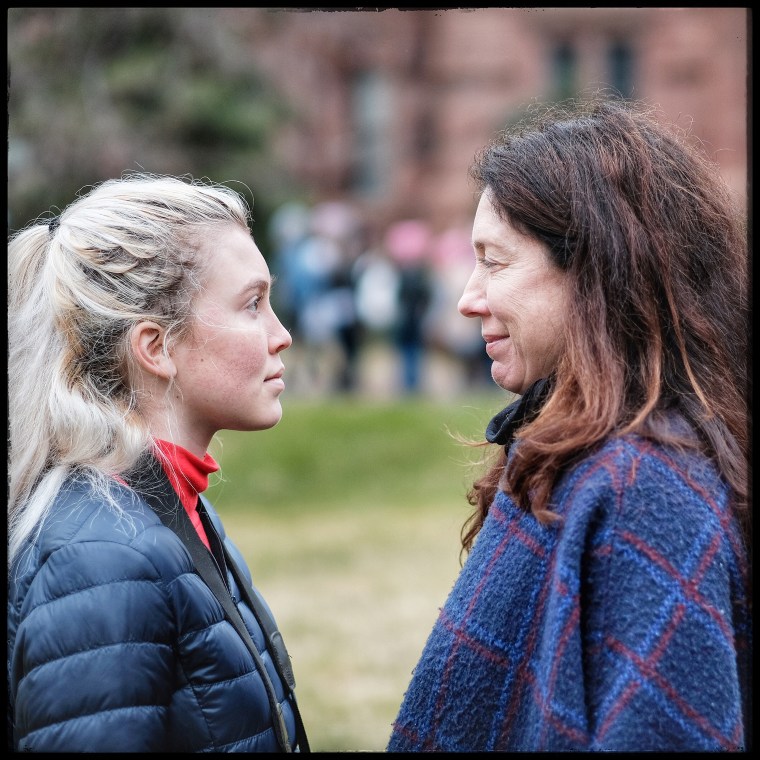
Cy Gouldsmit, 15, and her mother Leslie slid sideways through the crowd that was sometimes thick and stagnant on the National Mall. Roye pulled them aside to inquire about why they attended the march: “I came to show the world that this president is not okay with most Americans. That he does not represent the people who are here,” Leslie said. “Being here with my daughter sends a loud message that we did not choose him.” Cy added: “Yeah, I came because he does not represent me or any of my values.”
‘We Are Not Going Back’
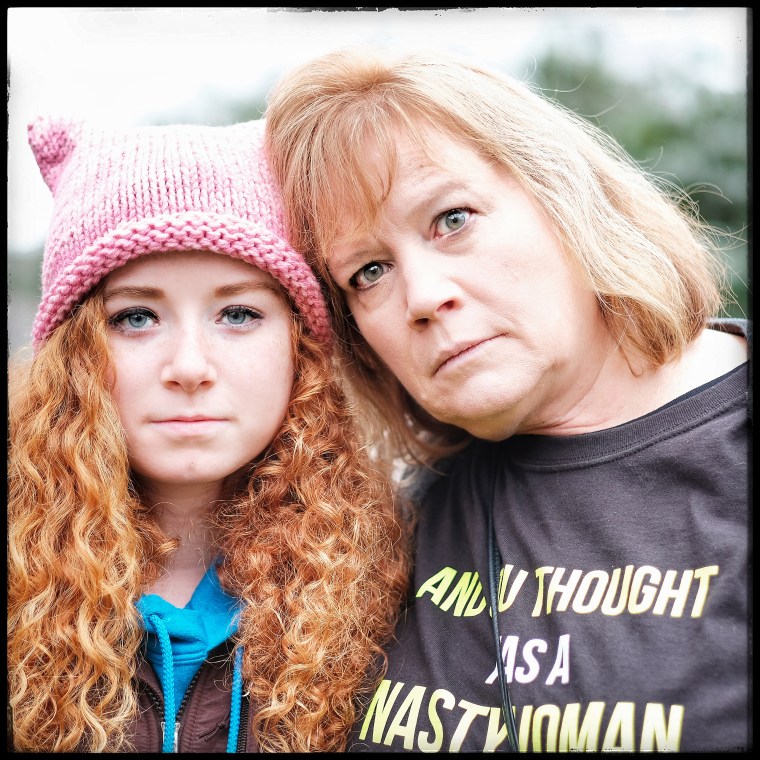
Sheila Ninneman, 57, stood by her daughter Nell Cormack, 20, on the National Mall. “I never took her dad’s name,” Sheila joked, looking into her daughter’s eyes. “I remember, as a little person, the fight—the struggle for women’s rights—and I do not want Nell to ever fight like that again. We are not going back,” Sheila said. “It is important that we show the world that Americans will not go back on the progress we have made,” Nell added. Her mother chimed in: “It is important for the world to know that Trump does not represent American values.”
‘Empathy and Future’
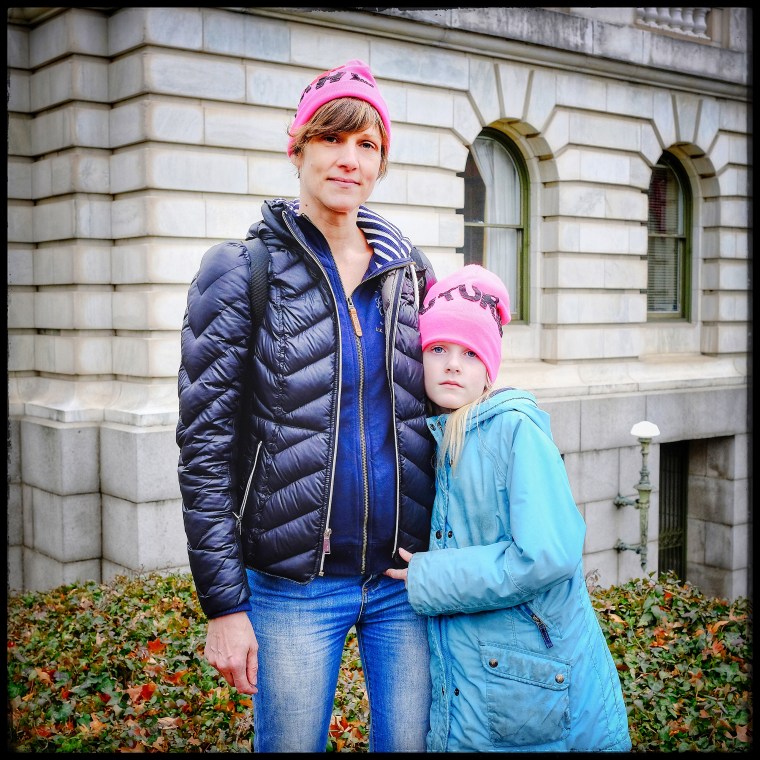
Jessica Lowe, 44, brought her nine-year-old daughter Fay Jensen: “We came because of two words which we wear on our hats: empathy and future. Those are the words I want her to take from this experience.”
‘Strength in Numbers’
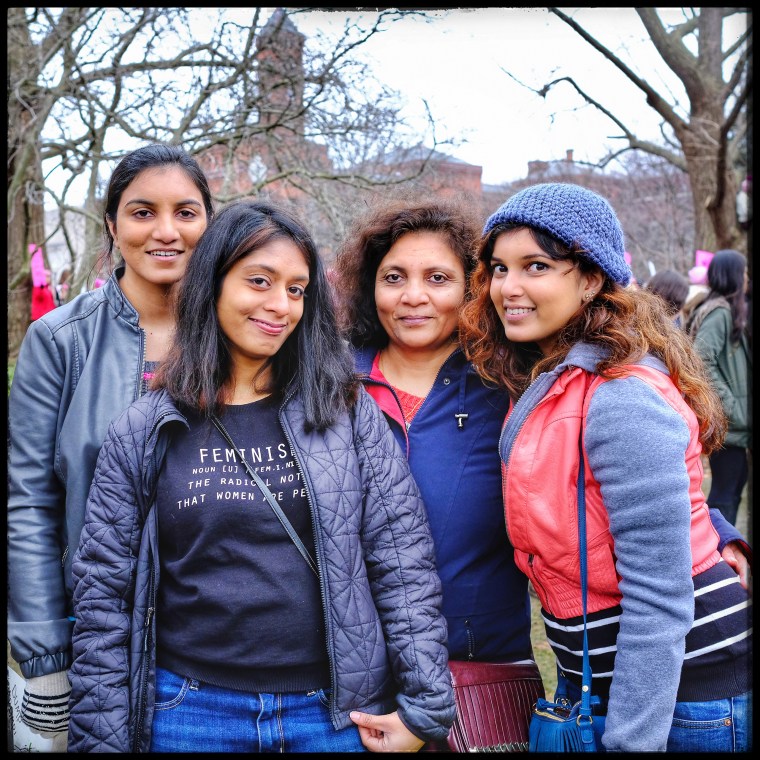
Gujan, 50, with her daughters, from left to right: Kriti, 25; Sirisha, 24; and Tanvi, 23. The four went to the march together to raise their voices. “We came to march with all these women because we want to march for women’s rights. We came to protect our reproductive rights, immigration reform and climate change,” Kriti said, on behalf of her mother and sisters. “Strength in numbers, we all said, and we all decided that it was our fundamental rights.”
‘We Are All Human Beings’
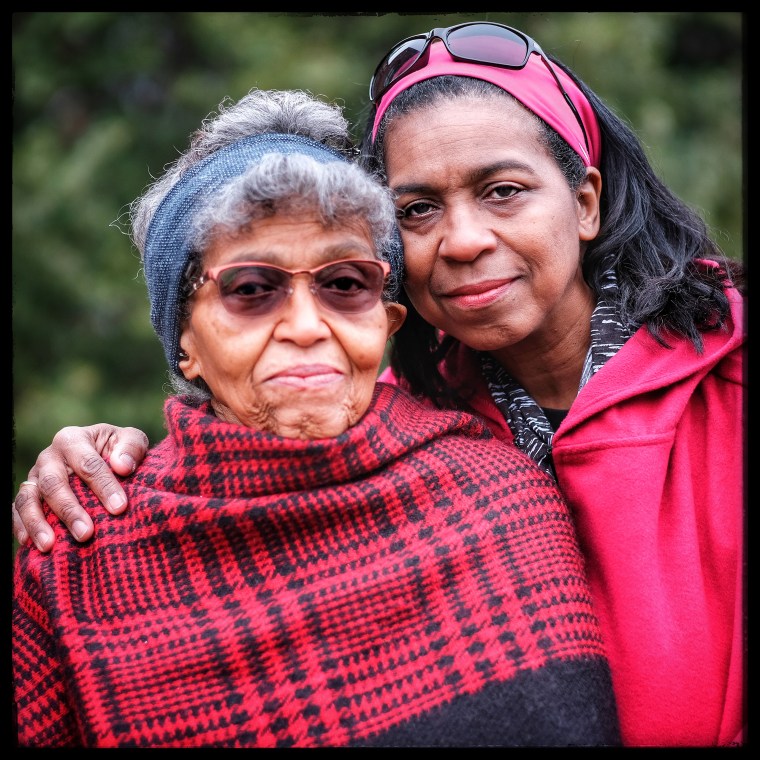
Dolores Spaulding, 87, walked across the wet grass with the assistance of a cane and her daughter, 57-year-old Angeline Spaulding Flowers. Her smile was filled with her years of grace and style, Roye said. Dolores told him she came from Winston Salem, N.C., in 1947 to attend Howard University in D.C. “It is the first time in my life that I have ever witnessed such blatant racists in public office. They were always there I think but they were never vocal, not like this,” she said. “I came here to march because we are all human beings and we have the right to be protected regardless of who is in office. Angeline told Roye: “the day after the election my daughter said to me, I guess people won’t vote for a woman president. Thirty years from now I do not want my granddaughter to think the same thing. That day she was stunned and looked so disillusioned.”
‘I Am Here to Do My Part’
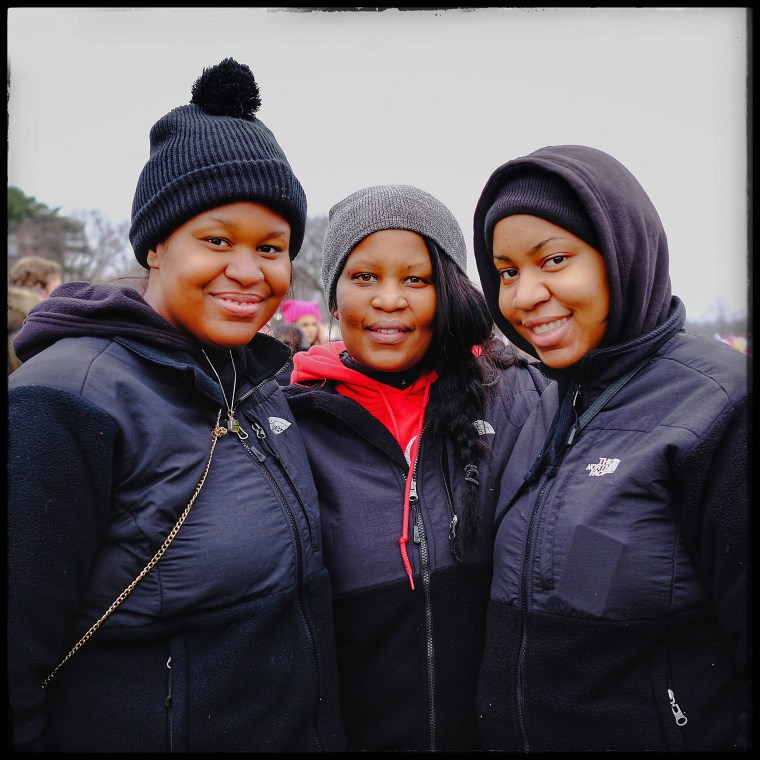
Roye met Gloria, 48, with her daughters Natavia, 29, and Chelsea, 24, as they stood all hugging each other gazing into the distance toward the Washington Monument. “This is a march for women’s rights, for black lives, for immigrant lives and for America,” Chelsea said. “I am here to do my part to make this world a more inclusive place,” Natavia told Roye. Gloria added: “I just wanted to experience this moment with my daughters. This is historical.”
‘I Need to Let My Voice Be Heard’
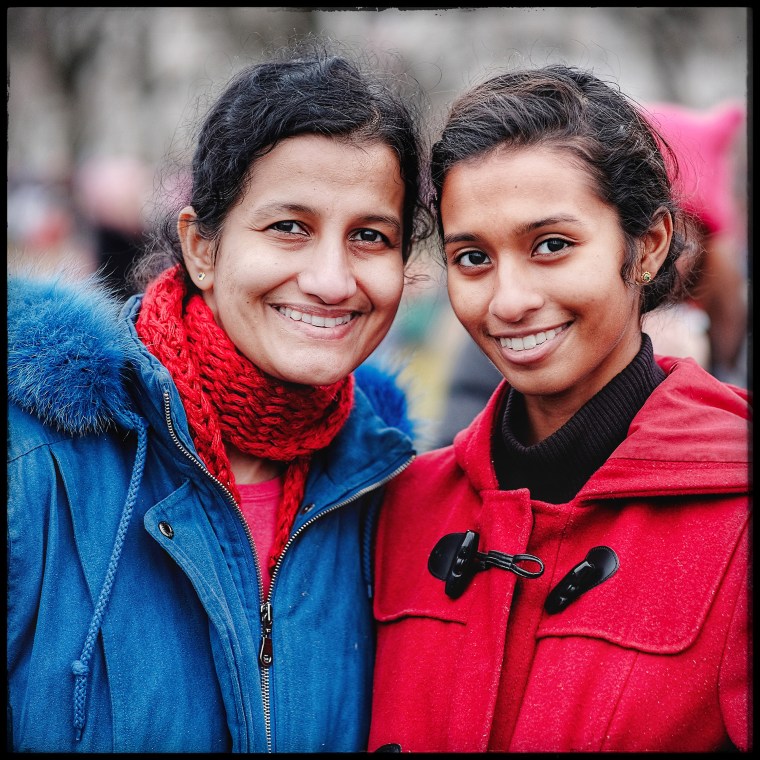
Anita Pisharody, 49, posed with her daughter Sruti, 22, at the march. “The first time I got into politics it was with my family. We always talk about policies. So when my brother decided to go off to college and said he was coming here, we decided as a family to make this a family affair,” Sruti said. “The idea of being in the political process is like a great joy and I am happy to be here in solidarity with all these women.” Anita added: “I need to let my voice be heard against racism. I need to let my voice be heard on women’s rights, justice and equality—and I mean equality not just for women but for all.”
‘I Want Them to Know What Their Rights Are’
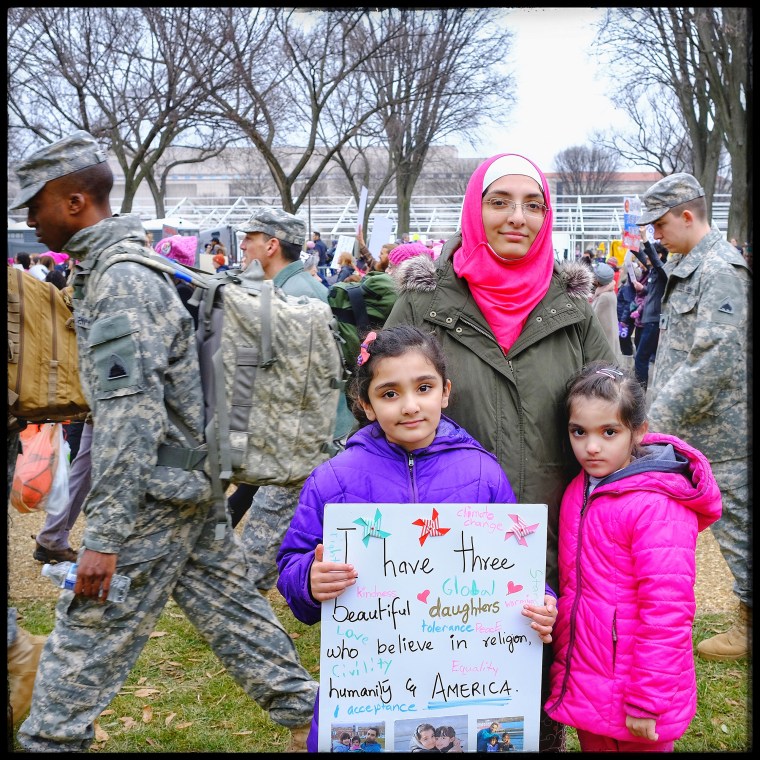
Syeda brought her daughters Rameesha, six, and Fariha, seven, to walk with all the other women who shuffled slowly and raised their signs above their heads, representing their inner voices. “I came here because I have three daughters and I want them to know what their rights are,” Syeda said. “I also brought them because my daughters are really concerned about climate change.”
‘I Want to Be a Part of History’
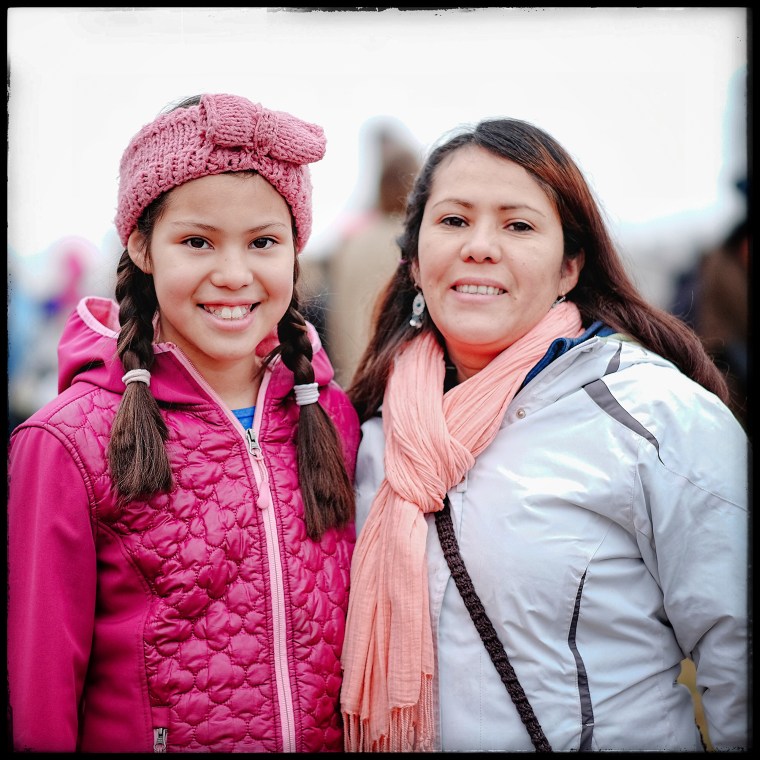
Amy, 10, went to the march with her mother Veronica, 39. “I wanted to be a part of this because it is important to everyone,” Veronica said. “I wanted to show my daughter that there are people who care about girls and women.” Amy told Roye: “I wanted to be a part of this march because I want to be a part of history.”
‘We Have a Voice’
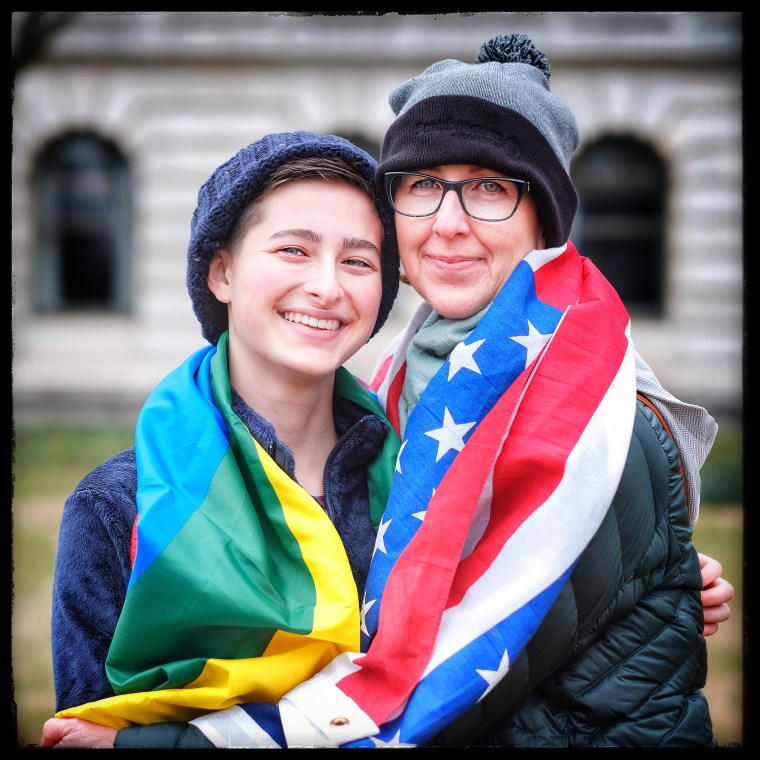
Roye watched Charlotte, 14, and her mother Paige Baldwin, 52, strolling down the National Mall with the procession of protesters yelling slogans at the top of their lungs. Paige had an American flag around her neck, while her daughter had the colors of the LGBT community around hers. “I came because Charlotte wanted me to come,” Paige told Roye. “I came because we could.” Charlotte added: “I wanted to be a part of this because it seemed like a good message to send to President Trump. I needed him to know that we are here and that we have a voice.”
Ruddy Roye is a documentary photographer based in Brooklyn. He was TIME’s pick for Instagram Photographer of 2016. Follow him on Instagram @ruddyroye.
Andrew Katz, who edited this photo essay, is TIME’s International Multimedia Editor. Follow him on Twitter @katz.
